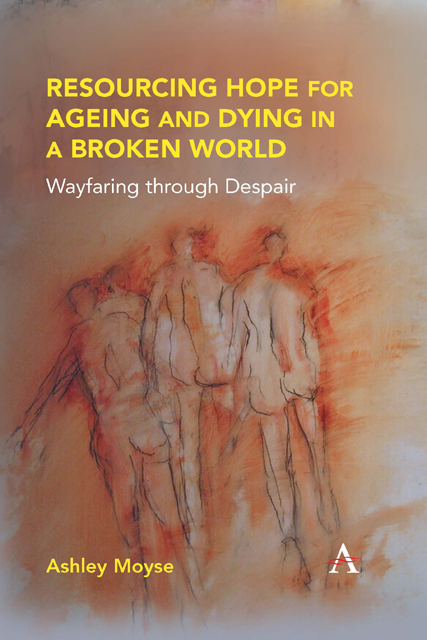Book contents
4 - Wayfaring through Despair, Practising Hope
Published online by Cambridge University Press: 10 January 2023
Summary
From the outset, that task has been to study a particular imaginary (among others that have given shape to the modern project as well as the individual and social preoccupations to transform the world to one that is controllable). Thinking with Marcel, this particular imaginary is one where persons become problems for themselves – where persons come to think that ‘existence is a problem to be solved’ through the administration and continued exercise of vital and social functions which can be deployed in order to possess our desires and to assuage our fears. Running from the actualities of corporeality and experiences of suffering (coming to regard them ‘from the outside’ as purely objective phenomena, or problems, to be studied, subdued and surmounted by way of technique), we discovered persons perceiving a broken world. ‘From the outside’, frail ageing and terminal diagnoses are regarded as objectively delimited impediments to achieving particular and, often, technologically mediated, aims or ideals (like the freedom from pain and suffering). However, we have also seen, frailty and illness, including depredations of ageing and dying, do prove relentless and the problematical reveals itself as fodder for despair. Additionally, pessimism has been revealed by a constellation of functional hopes; a pessimism that admits life is meaningless when late modern ideals, including control, independence, autonomy and the like, are threatened, unobtained or lost. We have, therefore, encountered a perspective that seeks after relief from such despair, but remains unable to see another way beyond the world of the problematical.
Unwittingly perhaps, persons, both young and old, do believe that overcoming death is a principal and possible and good goal of medicine. Ageing, considered as a pathology that leads to death, like a cancer or virus or bacterium, is thus a thing like any other, which we can eradicate from human experience with the right kind of technique. Dying too can be domesticated by managed options elected by the living, which serve to overcome the fated ugliness of death (that death which offends our agency and desire). Perhaps these same persons do prioritise living over dying. Perhaps they do so happily, faith-filled that pain and suffering and the disorder of ageing and dying are discrete states that ought to, and therefore can, be eliminated.
- Type
- Chapter
- Information
- Resourcing Hope for Ageing and Dying in a Broken WorldWayfaring through Despair, pp. 91 - 130Publisher: Anthem PressPrint publication year: 2022

